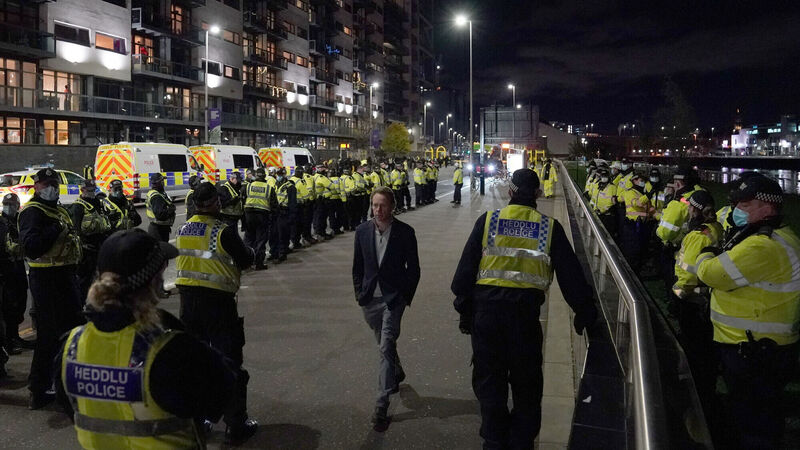Pádraig Hoare: Why Cop26 is an eye-opener

Welsh police, with colleagues from around the UK, wait for protesters at the entrance to the Scottish Event Campus (SEC), in Glasgow, where the Cop26 summit is being held. Picture: Andrew Milligan/PA Wire
Logistics at the Scottish Event Campus (SEC) may have been shambolic as Cop26 got under way, but getting here has been an eye-opener for all the right reasons.
There is much to criticise, and even lambast, about UK-led preparations for the 25,000-strong-delegate UN climate-change conference in Glasgow this week.
CLIMATE & SUSTAINABILITY HUB
















